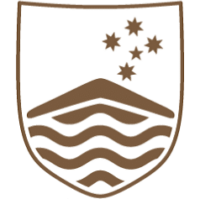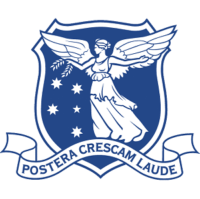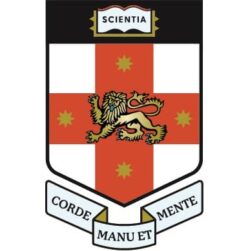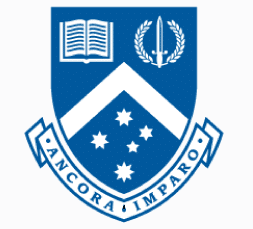A PhD in Australia can be a fulfilling and thought-provoking experience, especially when full funding is secured. In Australia, PhDs are supported by scholarships for 3 full-time years (up to 3.5 years). Australian PhD programs are semi-structured and do not require coursework or final exams. Higher Degree by Research (HDR) is the main category for research-based PhD in Australia (and also for master’s). Planning your academic path requires an understanding of Australia’s higher education system, regardless of whether you are a domestic or international student. This guide covers everything you need to know about obtaining a PhD in Australia, and some aspects are discussed based on Dr. Reyhani‘s experience applying for and receiving his doctorate in Australia.
PhD in Australia: Structures, Duration, Requirements
Types of PhD Programs in Australia
Semi-Structured PhD Programs in Australia
Nearly all PhD programs in Australia follow a structured format, making it difficult to find individual PhD positions (also called PhD research project positions). However, these structured programs are often semi-structured in practice, similar to those in Germany and France, where students are not required to attend mandatory subject courses, and there are no final exams at the end of semesters. Dr. Reyhani refers to these as “PhD research programs” in Australia, as they strike a balance between being fully research-intensive and program-structured. A full-time PhD duration in Australia typically ranges from 3 to 3.5 years.
Dr. Reyhani says that the head of the chemical engineering department introduced a “Research Methods” course with a final exam for the first time in the department during his first year at the University of Melbourne (UniMelb) in 2016. However, they removed it after two years because they felt it was not very helpful, returning to a full PhD research program format. You should locate a PhD supervisor who agrees to support your application for a PhD in Australia. Remember that this supervisor also tells other students that they would support them, but it is the departmental admission committee that decides who gets PhD scholarships. It means that a supervisor’s initial approval does not guarantee any funding.
Research projects, departmental seminars, a first-year confirmation meeting with a PhD committee, a PhD thesis (i.e., an original piece of research, typically equivalent to 70,000 to 100,000 words), and a PhD completion seminar (also called a PhD viva) are all required components of PhD research programs in Australia. A primary supervisor, one or two co-supervisors, an advisor (which is infrequent), and a committee chair are typically included on the PhD committee. You can submit your PhD thesis as a “Thesis by Publication” by simply attaching PDF files of your research papers or communications, provided that you have published at least three original works.
Direct PhD in Australia: Can you do a PhD in Australia without a master’s?
International students can start their doctoral studies immediately after earning a bachelor’s degree in Australia through direct PhD programs, which eliminate the need for a traditional master’s degree. Students with a solid academic record as well as research and work experience in related fields are the target audience for these programs. If you have a bachelor’s degree with honors, which is common in Australia, the UK, Canada, Ireland, New Zealand, and South Africa, as well as a solid academic record and research experience, your chances are even better. The same entrance requirements as domestic students will apply to international students, including fluency in English and the possibility of proving a higher GPA or particular test results.
Integrated PhDs are another name for a direct PhD in Australia. Unlike the 5-year PhD tracks in France, they don’t include a separate master’s phase because they are intended for students who are considered prepared to start doctoral-level research right away and have a strong academic background, usually a Bachelor’s degree with honors or comparable research experience. These programs condense the conventional two-step process (a master’s degree followed by a PhD) into a single, concentrated program that takes 3 to 3.5 years to finish. Let’s have a look at the University of Queensland (UQ)’s answer to the “Can I go straight from bachelor’s to PhD in Australia?“:
Yes. Most universities will accept applications from students who have a bachelor’s degree with honors (typically at least IIA) as their highest level of completed study. Some universities may accept a bachelor’s degree without honors but with several years of relevant research experience, or a bachelor’s degree without honors but followed by a relevant graduate certificate or graduate diploma.
There are definite benefits to completing further studies after your undergraduate degree to prepare you for your PhD in Australia. Understandably, you might want to fast-track your way to your PhD, but remember that going in as prepared as possible will help you get the most out of your research.
If you don’t want to commit to a master’s program after your undergraduate degree but you still have your heart set on a PhD, talk to your course convener about fitting research units into your study plan during your bachelor’s program. Completing a graduate certificate or diploma following your bachelor’s, with a focus on the research area you wish to pursue with a PhD, will help you get a clearer idea of potential research topics, too.
Admission PhD Requirements in Australia
Basic qualifications for students to pursue a PhD in Australia include a bachelor’s (for the direct PhD pathway) and a master’s degree (for the regular PhD pathway) in a relevant field. Admissions committees also consider strong academic performance, including a high GPA (above 80%, H1, or first class honors). Some programs may require prerequisite courses or research experience. Research experience and academic achievements are taken into account during the selection process. Required documents include tertiary degrees, academic transcripts, a research proposal, letters of recommendation, and a personal statement. International applicants for a doctorate in Australia must meet the intended university’s minimum requirements for TOEFL iBT, PTE, or IELTS Academic tests.
Unlike the USA and Canada, Australian universities place a high value on work experience relevant to your field of study, according to Dr. Reyhani‘s experience, particularly when you apply for a direct PhD in Australia. Additionally, he witnesses that while some universities, such as Monash University, place more value on publications, others, like the UniMelb, value master’s GPA more. Therefore, to get more information, talk to as many PhD students or recent graduates in Australia as possible. Universities never post such information on their websites. A supervisor supporting your PhD in Australia is necessary for you to submit your application. In more than 95% of PhD programs, you can not enter the application pool without a supervisor.
How to Apply for PhD in Australia
A clear understanding of the application process is crucial for a successful PhD application in Australia. This process could be different depending on the field of study; therefore, pay attention to details relevant to your field of study. By following the application guidelines and familiarizing yourself with the deadlines, you will ensure that your application is complete and meets all the requirements. If you have any doubts or questions, do not hesitate to seek assistance from program coordinators, faculty members, or advisors. A strong application is necessary to stand out in a pool of applicants because admissions committees seek a clear research focus and potential.
The application process for a PhD in Australia typically involves filling out an online application form. A CV and academic transcripts from previous educational institutions need to be submitted. Letters of recommendation from professors or professionals in the field are required. A personal essay outlining research interests and career goals is necessary. Some PhD programs in Australia may require additional requirements, such as a writing sample or a PhD interview. Finally, pay the application fee and officially submit the form.
Applyindex gives candidates a single, smart platform to manage and navigate their process when applying for the PhD in Australia. It effectively and consistently assesses the quality of your resume, calculates your likelihood of receiving funding, creates a data-driven Word document of your resume, demonstrates how to locate a supervisor who has research grants, emails them automatically on your behalf, arranges your notes, and performs numerous other tasks during your application process. Read the article “How Applyindex works for applicants” for details.
PhD Australia: From O-Week to PhD Thesis Submission
Upon arriving in Australia, you will complete your registration at the university where you have been accepted as a new PhD student. This marks the official start of your academic journey. Soon after enrolling, you will participate in Orientation Week (O-Week), designed to help new students become familiar with the university’s environment, facilities, and policies. O-Week provides an excellent opportunity to meet your PhD supervisor(s), explore your research workspace, complete your induction, settle into your office, and set up your IT access with the university’s support services, all in preparation for the exciting years of research and discovery ahead.
It is critical to have open lines of communication with your supervisor(s) during the first stages of your PhD in Australia. Discuss your research strategy, workspace configuration, necessary materials, and any short-term deadlines. The first-year confirmation of candidature will be one of your first academic milestones as a PhD student pursuing research. This typically takes place at the end of your first year and entails presenting and defending your proposed research to a PhD committee (main supervisor, co-supervisor(s), and the committee chair). You can continue your research after passing this phase, which formally validates your PhD status.
The mid-candidature review, typically held toward the end of your second year, represents the next major milestone of your PhD in Australia. This review ensures that you are on track to complete your research, assesses your progress, and identifies any challenges that may need attention. Following this stage, you will prepare for your PhD completion seminar, also known as your thesis defense, usually conducted in your third year. During this seminar, you will present your research findings and demonstrate your contribution to your field while simultaneously writing your papers and PhD thesis. Ultimately, you must submit your PhD thesis by your university’s official deadline to complete your PhD in Australia.
Top Universities to Find PhD in Australia
PhD in Australia at UniMelb and ANU: the Top 2
The UniMelb, located in the heart of Melbourne, is the 1st-ranked university in Australia according to QS. It is renowned for its emphasis on interdisciplinary research and collaboration. With a wide range of PhD programs in engineering, social sciences, and humanities, students have access to experts who provide valuable mentorship. The UniMelb also offers extensive research resources and funding opportunities. Its graduates at any degree level (e.g., bachelor’s, master’s, PhD, etc.) significantly contribute to academia, industry, and public services.
Australian National University (ANU) is well-known for its PhD programs in the humanities and natural sciences. Its PhD in Computer Science is highly regarded for its cutting-edge research and innovative curriculum. The program offers various research areas, including artificial intelligence, data science, and computer systems. ANU is the 1st-ranked university in Australia according to the a-index Global University Rankings system with an a-index of 88.6 in 2025. Its faculty members are leaders in their respective fields, providing unparalleled expertise and mentorship. Graduates have gone on to work in academia, industry, and entrepreneurial ventures.


PhD in Australia at UNSW Sydney
Known for its renowned PhD program, the UNSW School of Chemical Engineering offers diverse research opportunities in advanced process systems engineering, biomaterials, medical devices, energy, environmental processes & technologies, food & health, macromolecular & interfacial engineering, sensor technology, and Advanced Materials. It is a global leader in fundamental and applied research. Their researchers provide solutions that refine and improve manufacturing processes, introduce smarter, better-performing materials, and address the increasing importance of sustainability in everything we do. With distinguished faculty members who are respected scholars in their respective fields, UNSW is located in Sydney.

PhD in Australia at Monash University
Monash University offers a highly respected PhD in chemistry. Aspiring doctoral students can utilize ample research opportunities in the School of Chemistry. It provides several research opportunities for PhD candidates in materials, synthetic, environmental, polymer, analytical, medicinal, and biological chemistry. Monash University is also globally renowned for a PhD in chemistry, preparing students for careers in academia and research. With renowned faculty members in the nursing field, Monash University is globally ranked #31 by the a-index World University Rankings system, and is located in the southeast of Melbourne, Victoria.

PhD in Australia at University of Sydney
The University of Sydney offers rigorous PhD programs prioritizing intellectual inquiry and critical thinking. Renowned faculty provide exceptional mentorship, fostering a vibrant academic community. Extensive research resources and funding opportunities support students throughout their programs. Graduates from its PhD programs have become leaders in their fields, significantly contributing to academia and beyond. For example, the School of Humanities offers fully funded scholarships for a PhD in philosophy, with its esteemed faculty members. Philosophy at the University of Sydney is home to leading thinkers in various areas of philosophy, and they offer a rich and varied array of units taught by dedicated and enthusiastic scholars whose outstanding research informs their teaching at every level.

PhD in Australia at University of Queensland
The Business School of UQ, located in the vibrant city of Brisbane, Queensland, offers a renowned PhD in business management. It provides extensive research opportunities for doctoral students and various financial aid options, including tuition assistance and stipends. It allows students to develop analytical and research skills through independent investigation in a specific field of business. The faculty members are highly respected experts in the field of business management. Their Business School offers two internationally recognized postgraduate qualification programs, PhD and Master of Philosophy (MPhil), as HDR options.
PhD in Australia by Discipline
Australia is a great place for doctoral research in a variety of fields because of its highly regarded research universities around the world and substantial government funding. Australian PhD programs, which have a strong industry and government partnership, place an emphasis on both academic excellence and the real-world application of knowledge. Universities across the country are leading the way in tackling global issues like sustainable development, digital transformation, and climate change. Here are three research fields where a PhD in Australia leads the world in both innovation and expertise.
PhD in Environmental Science in Australia
Due to its distinct ecosystems and pressing environmental issues, Australia is a leader in environmental science research. PhD candidates frequently work on projects related to climate resilience, marine ecosystems, biodiversity conservation, and sustainable land management. Universities such as James Cook University, the UQ, and the ANU are well-known throughout the world for their studies in water resource management, renewable energy systems, and coral reef preservation. In order to obtain experience in applied environmental policy and scientific advisory work, many PhD students work with government organizations like the Great Barrier Reef Marine Park Authority or CSIRO. In academia, climate consulting, and sustainability leadership, graduates are essential.
PhD in Computer Science in Australia
Artificial intelligence (AI), cybersecurity, data science, and robotics are the main areas of focus in Australia’s dynamic and highly competitive computer science research environment. To promote AI innovation, smart infrastructure, and quantum computing, the CSIRO’s Data61 projects work closely with academic institutions, including the UniMelb, UNSW Sydney, and Monash University. Numerous PhD candidates are working on industry-related projects that are supported by technology companies or national research programs. Graduates with a PhD in computer science are well-positioned for academic careers or high-level positions in emerging tech sectors like autonomous systems, financial technology, and digital health analytics due to Australia’s emphasis on digital transformation.
PhD in Agriculture in Australia
With agriculture as a major economic pillar, the PhD in Australia is a global leader in crop genetics, AgriTech innovation, and sustainable farming. Enhancing drought tolerance, increasing food security, and optimizing resource use through data-driven farming practices are common topics of PhD research in agriculture. To support doctoral research with practical applications, universities like the University of Adelaide, Charles Sturt University, and the University of Western Australia collaborate with agencies like CSIRO and AgriFutures Australia. Students can test innovations in the field thanks to numerous projects that involve cooperation with technology companies and agricultural producers. Graduates with a PhD in Agriculture secure significant roles in environmental policy development, agribusiness, and research.
How to Find a PhD in Australia
Australian university websites are among the most organized and regularly updated in the world to find a PhD. They provide detailed listings of PhD positions, entry requirements, deadlines, and application procedures. Therefore, they serve as the primary and most reliable sources for finding a PhD in Australia. Additionally, centralized online platforms such as Applyindex, PhD Portal, and FindAPhD are excellent tools for exploring both funded and unfunded PhD programs in Australia. Once the departmental admissions committee reviews your application, you will be notified if you have won a scholarship. Setting up alerts on these platforms helps you stay updated on new listings, while consulting multiple sources increases your chances of finding the ideal PhD position in Australia.
Costs of Self-funded PhD in Australia
The average tuition for international PhD students in Australia typically ranges from 25,000 AUD to 45,000 AUD per year. However, many leading universities, such as the UniMelb, ANU, and UQ, offer generous scholarships for PhD studies that cover full tuition and provide living stipends through programs like the Research Training Program (RTP). Living expenses in Australia generally range from 25,000 AUD to 35,000 AUD per year, depending on the city and lifestyle. While cities like Adelaide or Hobart are more affordable, Sydney and Melbourne tend to have higher living costs. With careful financial planning and the availability of scholarships, pursuing a PhD in Australia remains both feasible and rewarding for international students.
Funding Options for a PhD in Australia
In Australia, all funding sources for doctoral studies are referred to as PhD scholarships and are offered by universities or the government. The research supervisors who have research grants split the university-paid ones so that the university covers 80% of the student scholarships and the supervisor covers 20%. A PhD in Australia, funded by a scholarship, provides students with access to essential research facilities, tools, and resources that are often costly and may not be easily accessible without funding. Receiving research funding acknowledges a student’s abilities and provides access to additional opportunities such as conferences, collaborations, and career progression. Moreover, Australian universities collaborate with government agencies and industry partners (like CSIRO) to secure additional financial aid.
Australian Visa Requirements for International Students
To undertake a PhD in Australia, international students must apply for a Student Visa (Subclass 500). The visa allows you to stay in Australia for the duration of your PhD program, typically three to four years (up to 6 years under specific circumstances), with the option to include dependents. Before applying, you must have an unconditional offer of admission or a Confirmation of Enrolment (CoE) from an Australian university. The application process is completed online through ImmiAccount on the Department of Home Affairs website by paying a visa application fee of 2,000 AUD. It usually takes 4 to 8 weeks to process, depending on your country of origin and the completeness of your documents.

You will need to show evidence of sufficient financial capacity (a PhD scholarship or your personal source), generally estimated at around 29,710 AUD per year for living costs, in addition to tuition fees and travel expenses. Proof of Overseas Student Health Cover (OSHC) for the entire study period is mandatory, and you must meet Genuine Temporary Entrant (GTE) and English proficiency requirements (commonly demonstrated through IELTS, TOEFL, or PTE Academic). Once the student visa is granted, you can enter and remain in Australia for the length of your PhD program, plus additional time at the end for completion or travel.
Can You Work During a PhD in Australia
Yes. International PhD students in Australia holding a Student Visa can work unlimited hours while enrolled in their program, following the 2022 visa policy update that removed the 40-hour per fortnight restriction for research students. This flexibility allows PhD candidates to take on research assistantships, tutoring, or professional roles related to their field of study. The average part-time wage is 25-50 AUD per hour, depending on the job and university. Many universities also offer paid teaching or research assistant positions, providing both income and valuable academic experience. Additionally, after completing your PhD in Australia, you can apply for a Post-Study Work Visa (Subclass 485), which allows you to live and work in the country for up to four years.
What Are Benefits of Choosing a PhD in Australia?
Australia’s Leadership in Research
Australia has a strong economy and the best research opportunities worldwide, as Australian universities are among the top-ranked global universities with a high-quality research system. Many fields of study require special facilities and conditions so that students can progress in their areas. While some countries may not have such facilities, Australia has the best global research equipment, facilities, and professors. Thus, after getting a PhD position with a scholarship, your only concern will be working on a project in your field of research with the best mentors in science, technology, humanities, engineering, AI, and many others, without limitations and restrictions. Finally, you will receive one of Australia’s best and the world’s most meritorious degrees, i.e., a PhD in Australia.
Career Prospects After a PhD in Australia
Earning a PhD in Australia opens diverse and rewarding career pathways across academia, research, industry, and government. Australia’s strong innovation ecosystem, supported by organizations like the CSIRO and the Australian Research Council (ARC), creates abundant opportunities for PhD graduates to contribute to cutting-edge projects in renewable energy, data science, biotechnology, and environmental management. Graduates often secure positions at top universities such as the UniMelb, ANU, and Monash University as lecturers, postdoctoral researchers, or research fellows, or work with industry leaders like CSIRO, Cochlear, BHP, Rio Tinto, ResMed, and Atlassian in consulting and R&D.
Regarding expected salaries in Australia, PhDs in engineering and technology earn between 100,000 and 180,000 AUD in government or industry positions, while PhDs in natural sciences typically make between 90,000 and 160,000 AUD in advanced materials research, pharmaceuticals, or clean energy. PhD holders in business and management can anticipate earning between 110,000 and 200,000 AUD, and they can work in corporate strategy, academia, or data-driven consulting firms. Australia’s PhD holders in the humanities and social sciences, who work in cultural research, policy analysis, and education, make between 75,000 and 130,000 AUD.
Australia’s Beautiful Nature
Beyond simply being aesthetically pleasing, Australia’s magnificent landscapes and well-known tourist spots provide an unforgettable setting for your academic career. The nation is a haven for adventurers and nature lovers, with its breathtaking Great Barrier Reef, historic Daintree Rainforest, Uluru, and the Gold Coast’s immaculate beaches. Cities like Sydney and Melbourne skillfully combine access to national parks, walks along the coast, and exciting cultural events with urban living. A PhD in Australia entails getting top-notch research and living a life full of exploration, travel, and time in nature.

Immigration Opportunities After PhD in Australia
Australia provides a clear and rewarding pathway to immigration for PhD graduates. After completing a doctoral degree, international students are eligible to apply for the Temporary Graduate Visa (Subclass 485), which allows them to live and work in Australia for up to four years. During this time, graduates can gain valuable professional experience, an important factor when applying for permanent residency (PR). PhD graduates are also highly favored under Australia’s points-based immigration system, receiving maximum points for educational qualifications and additional benefits for Australian study and research experience. Many go on to apply for permanent visas such as the Skilled Independent Visa (Subclass 189) or the Skilled Nominated Visa (Subclass 190).
Online PhD in Australia: A Flexible Alternative
Online PhD programs in Australia are commonly referred to as PhD by Distance. These programs are designed for students who are unable or prefer not to relocate for their studies. Several reputable institutions, including the University of Sydney and the University of Technology Sydney (UTS), offer digitally delivered PhD programs that allow students to complete their research remotely while maintaining access to academic supervision and university resources through online platforms. Many universities offer funding opportunities in distance-based PhD programs. This makes remote doctoral study a financially viable option for candidates worldwide. Importantly, the admission requirements for PhD by Distance programs are typically the same as those for on-campus PhD programs.
Conclusion
Pursuing a PhD in Australia offers a world-class research experience supported by renowned universities, generous funding opportunities, and access to leading academic minds. Australia is a top destination for doctoral studies with diverse disciplines, competitive scholarships, and a multicultural environment. Choosing the right university, identifying a supportive supervisor, and carefully preparing your application are critical steps in this journey. Whether you are drawn to the global prestige of UniMelb and ANU or the specialized strengths of other institutions like Monash, Australia provides a fertile ground for innovation and academic excellence. With proper planning and informed decision-making, a PhD in Australia can be a transformative academic pursuit and a launchpad for impactful career opportunities.





